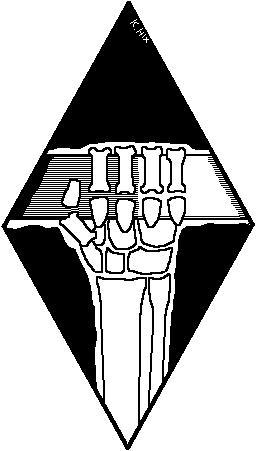
ďSo, you want to make your relic last a bit longer, eh? Of course I can change what itís made of, but I canít guarentee itíll ever be the same.Ē
Although wraiths have little or no need for material possession, that does not decrease the want for those things. While soulsteel, Artificers, and Masquers fill some of those desires, the fact remains that they can only change the shape of the object, not the material it is made of. They cannot turn obli into gold to deal with the Quick, they cannot easily add Stygian steel to a beloved weapon without damaging or re-forging it, and they cannot bridge the forbidden gap between the materials of the living and the dead.
Transubstantiation is an Arconoi fueled by the desire to turn existing objects into something of more value. Alchemists among the Quick have existed for centuries, trying to turn common elements into substances of significant value. But where the Quick fail, the wraiths succeed beyond their wildest dreams. However, this does not come without its costs; the loss of a valued possession, a close friend, or the soul of the wraith itself.
The Guild: Those who call themselves Talismans are incredibly rare. The Talisman Guild is extremely disorganized due to the low numbers of those who are able to practice the art of Transubstantiation. There has only been one occasion where a substantial number of Talismans have gotten together; it was after the disappearance of Charon, to decide whether to reveal themselves to the other wraiths. In the end, they kept their secrecy. Due to the small numbers of the Guild, they never even considered participating in the Guildsí Revolt. Many wraiths are unaware of the arts of Transubstantiation or the Talismans. Those who are can have an extremely hard time finding one, since a desire for their powers pushes those few who do have the art into hiding to prevent enslavement or abuse.
Talismans have hands that have taken on a sheen of whatever they work with the most; if a Talisman works with gold a lot, their hands take on a golden shine, if they work with granite, their hands will be gray, hard and rough, and so on. Wraiths who work with Stygian steel have hands that shine like a mirror. The oldest Talismansí faces are also marked in this manor due to their constant exposure to transformation.
Basic Abilities:Component: The wraith can use this art to find out what an object is made of. This can be used in investigations or to figure out if the weapon an enemy is holding in their hands is really as dangerous as it appears.
System: Roll Perception + Transubstantiation (difficulty 5). Only one success is needed to figure out a complete breakdown of the objectís material.
Sense Relic: This ability allows a wraith to figure out if any relics are nearby. The largest this area can be is a city block; the more successful the Talisman is, the more they narrow in on the location of the object. Wraiths may also focus on one relic out of a group of relics. Level One: Elixir
System: Roll Perception + Transubstantiation (difficulty 6). For each success, the wraith can narrow down the location of any nearby relic.
A wraith may take an object from the Skinlands and transform it from one material to another. This is useful for getting weapons through metal detectors, or coercing the Quick by giving them money or presents. The object must be fairly small for a basic transformation; pistols and revolvers, daggers, coins, jewelry, etc. are acceptable as small items. Larger objects can be transformed by spending more Pathos.
System: The player rolls Manipulation + Transubstantiation (difficulty 7 for small objects, 9 for larger objects). The more successes, the faster the object is transformed.
Each use of Elixir costs 1 Pathos for small objects, and more (Storytellerís discretion) for larger objects.
Level Two: Trickle
Level Three: Sphere
Level Four: Ore Evolution
Level Five: Midasí Touch
"Wraith: The Oblivion" and other publications owned by White Wolf are trademarks of White Wolf Publishing, Inc. This page is provided as a free resource; we do not make a profit from this page in any way.
All original materials and concepts are copyrighted J & K Productions. Resources may be borrowed for personal use, but may not be sold or distributed without our permission. You may not reproduce any original material on this page on another website or forum without asking our permission first; we will take action if there is such an occurance.